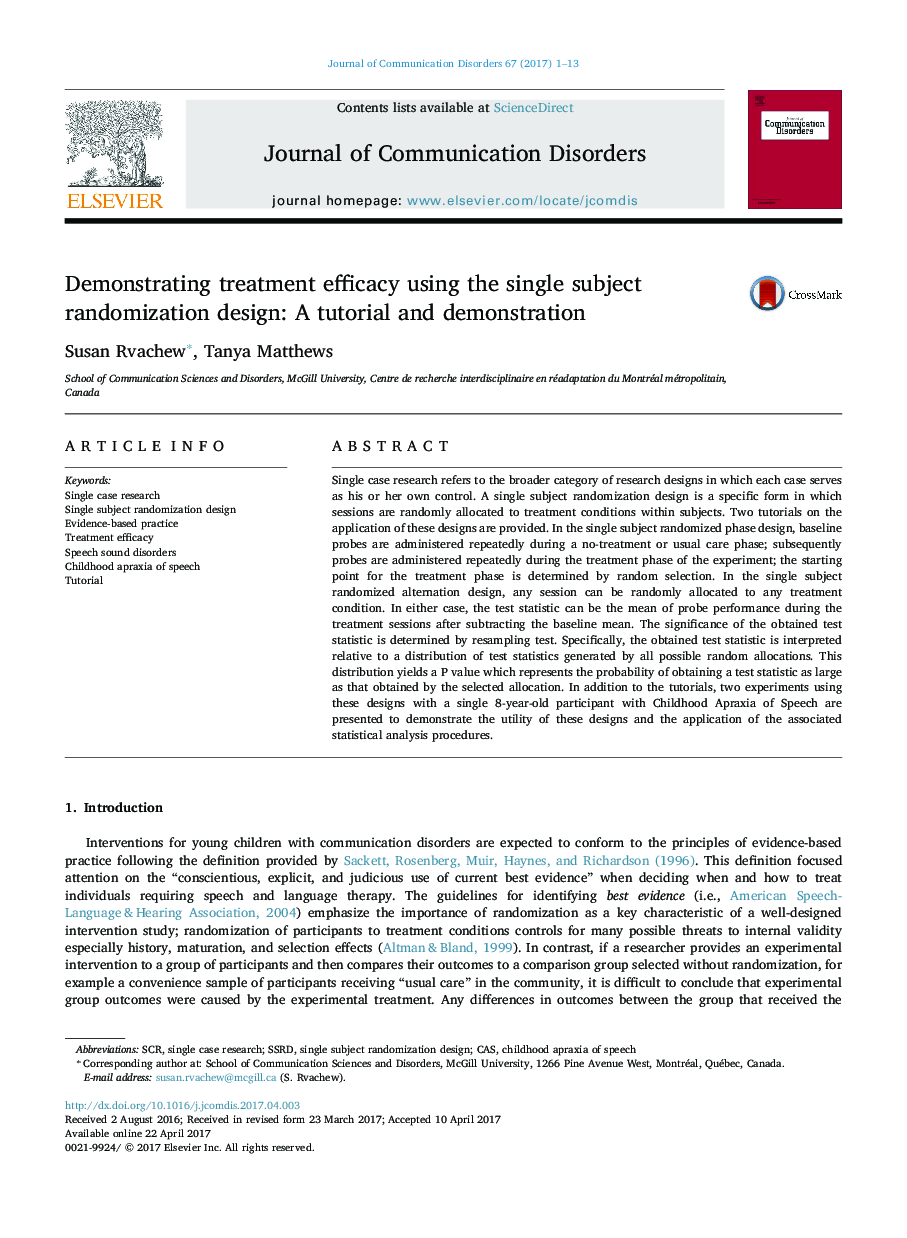| Article ID | Journal | Published Year | Pages | File Type |
|---|---|---|---|---|
| 5039078 | Journal of Communication Disorders | 2017 | 13 Pages |
â¢Randomization enhances the internal validity of single case research.â¢Random allocation of sessions to treatments controls for the impact of extraneous variables.â¢Random allocation permits the use of resampling tests to interpret the outcome of a single case experiment.
Single case research refers to the broader category of research designs in which each case serves as his or her own control. A single subject randomization design is a specific form in which sessions are randomly allocated to treatment conditions within subjects. Two tutorials on the application of these designs are provided. In the single subject randomized phase design, baseline probes are administered repeatedly during a no-treatment or usual care phase; subsequently probes are administered repeatedly during the treatment phase of the experiment; the starting point for the treatment phase is determined by random selection. In the single subject randomized alternation design, any session can be randomly allocated to any treatment condition. In either case, the test statistic can be the mean of probe performance during the treatment sessions after subtracting the baseline mean. The significance of the obtained test statistic is determined by resampling test. Specifically, the obtained test statistic is interpreted relative to a distribution of test statistics generated by all possible random allocations. This distribution yields a P value which represents the probability of obtaining a test statistic as large as that obtained by the selected allocation. In addition to the tutorials, two experiments using these designs with a single 8-year-old participant with Childhood Apraxia of Speech are presented to demonstrate the utility of these designs and the application of the associated statistical analysis procedures.
